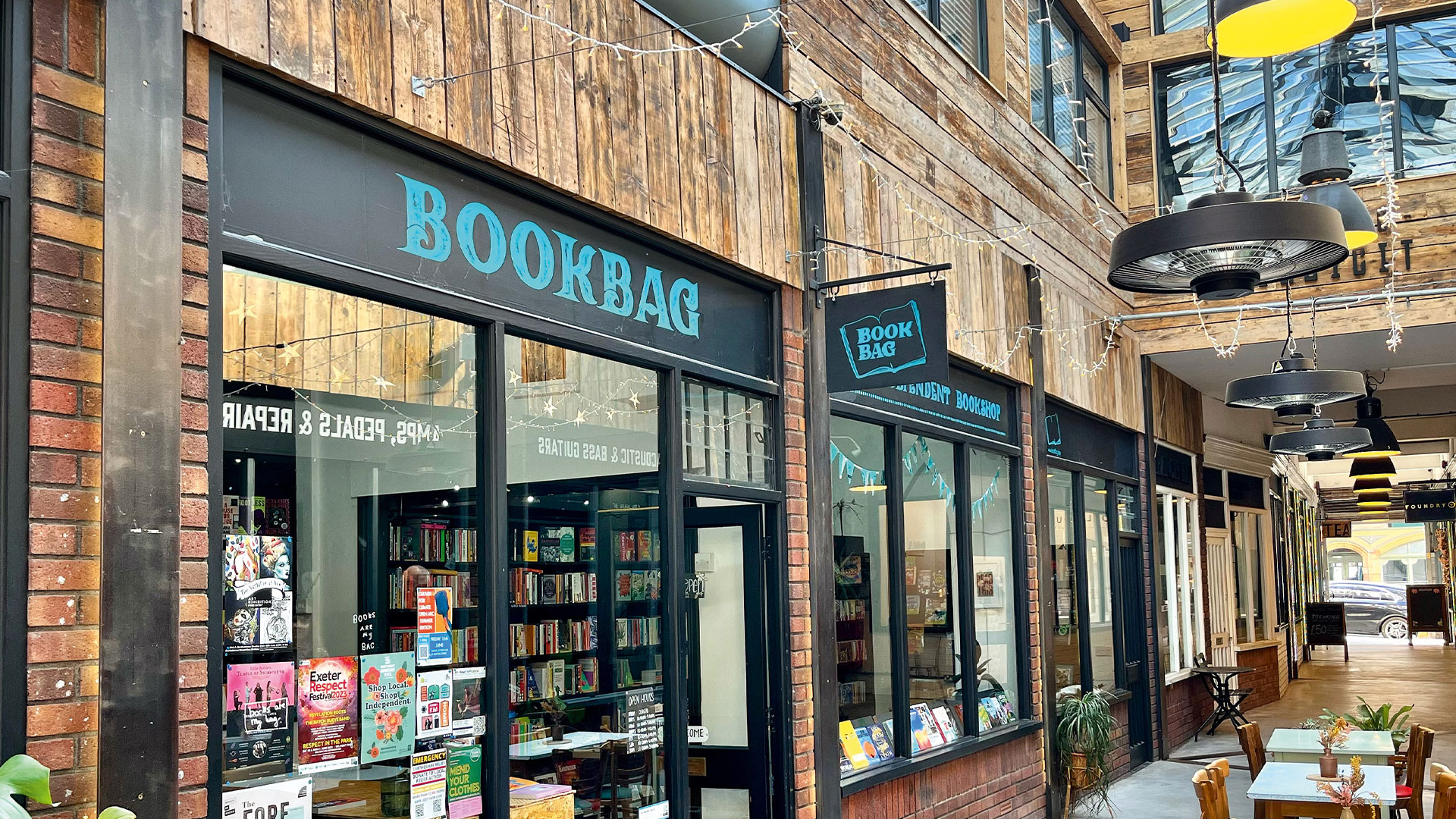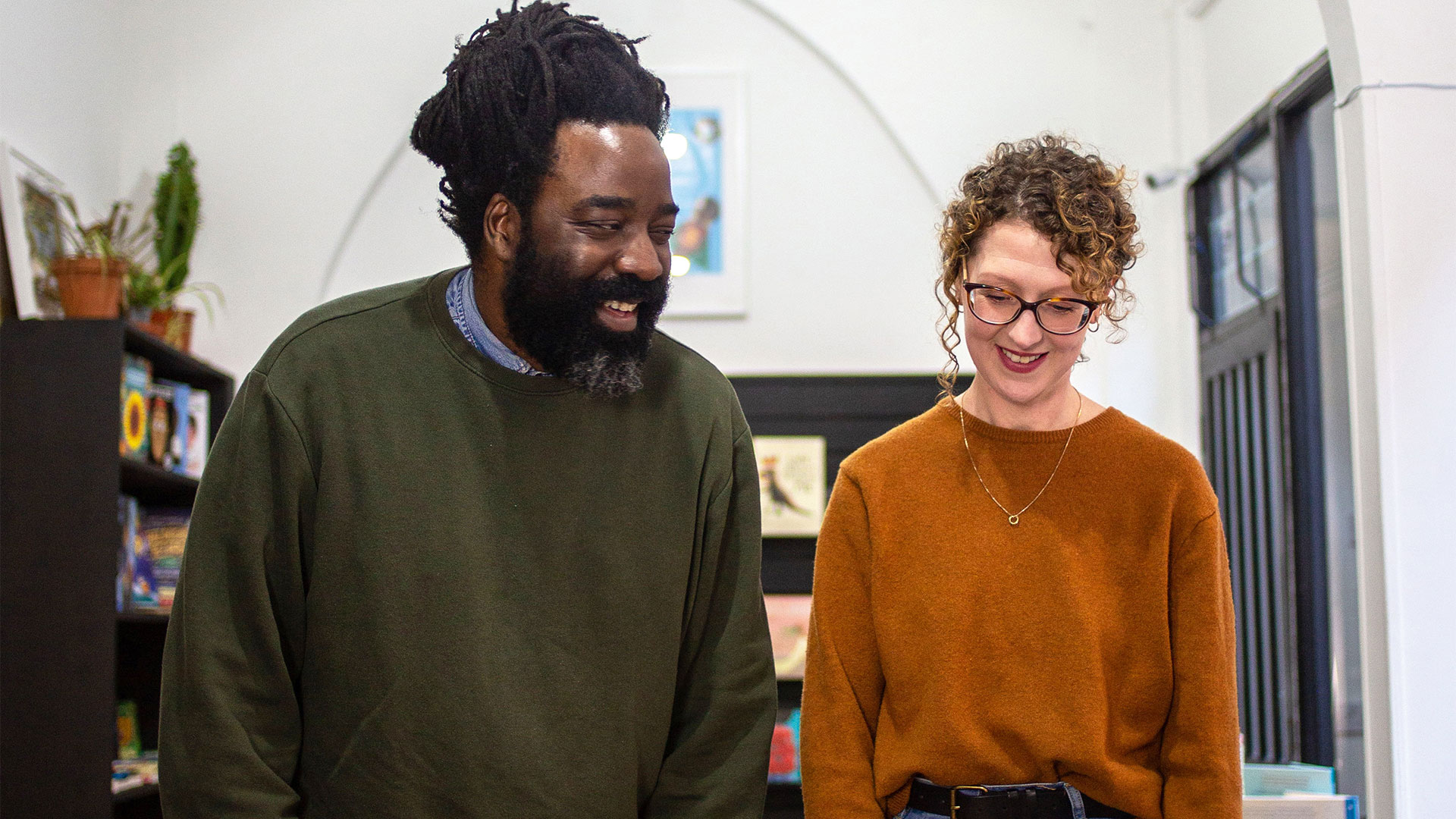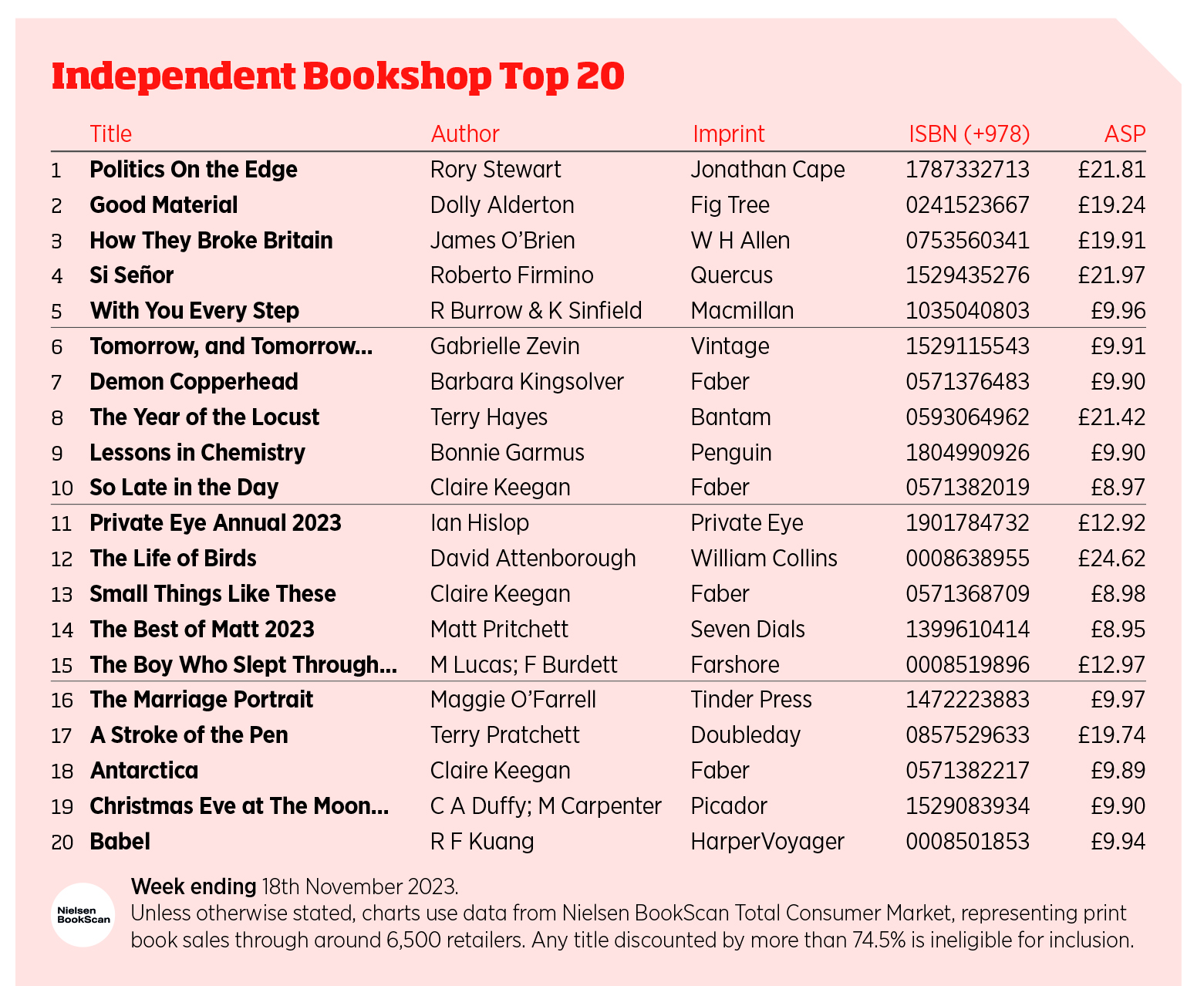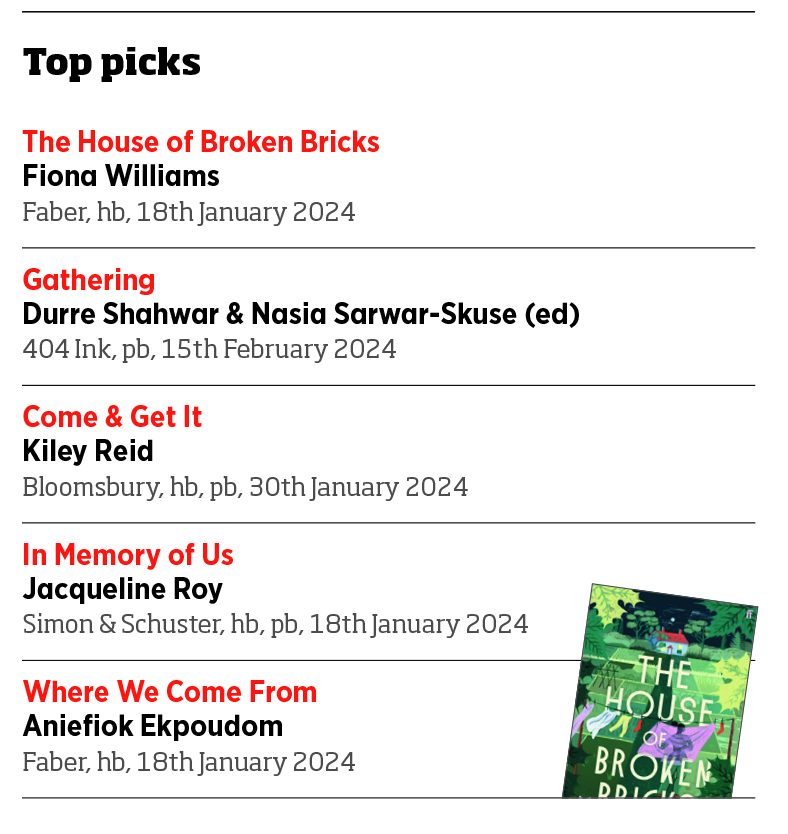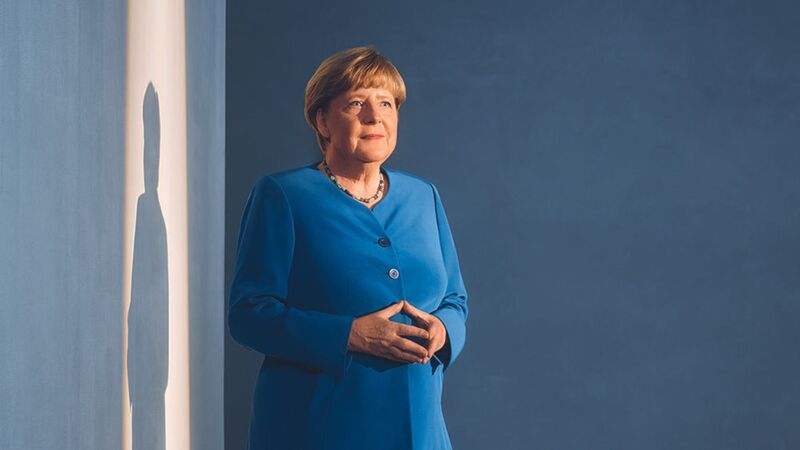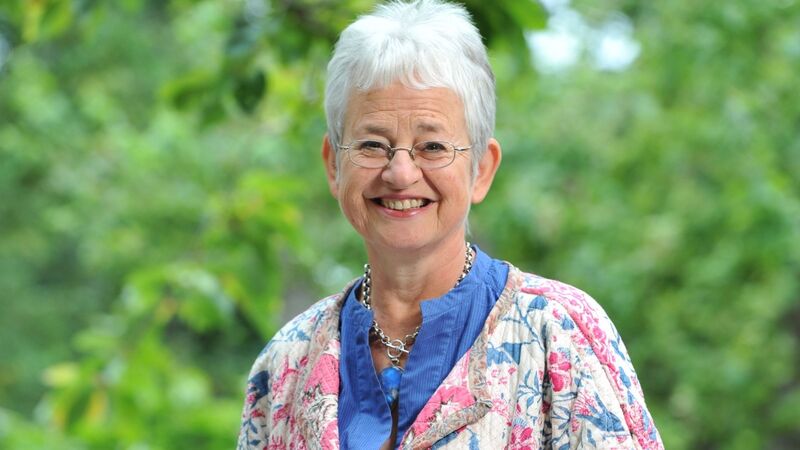You are viewing your 1 free article this month. Login to read more articles.
Bookshop Spotlight: Bookbag, Exeter
Hospitality, inclusivity and community are at the heart of the Bookbag bookshop in Exeter.
7–10 McCoys Arcade, Fore Street, Exeter EX4 3AN
It was during the pandemic, just after the launch of Bookshop.org—in a Unesco City of Literature with no indie bookshop—that Charlie and Malcolm Richards decided to open Exeter’s Bookbag. “The timing seemed right,” Charlie says about the launch of the shop, which stocks an “intentional” range of titles spotlighting women’s voices, writers of colour and LGBTQIA+ books.
Bookbag carries new releases as well as “classics”, featuring strong selections of Black history and nature books, as well as art and music titles. The booksellers seek to introduce indie publishers to their customers and try to support smaller presses, while the shop’s emphasis is on “hospitality, inclusivity [and] community”. The shop is frequented by locals, tourists and students alike whenever the Devon rain permits.
Co-owner Charlie has a marketing and events background, working with creative indie venues and arts organisations, while Malcolm is a senior lecturer in education. They both had a love of books and bookshops before opening their own business, with Charlie volunteering for an indie in Devon and Malcolm collecting second-hand books by Black authors.
The founders have grown their team since opening Bookbag and are assisted by Ocean Tawiah, Sirisha Demarla and Yasmine Srouji, who support with book choices and design artwork for the shop. The part-time booksellers also help with events, which have become a central part of the business since the shop launched in the pandemic, driving sales and making Bookbag a hub for social gatherings. “Our bookseller Sirisha started an open-mic poetry night here which has a cult following,” Charlie says. “We serve herbal tea and put rugs on the floor and people share their writing and read poems.”
Bookbag collaborates with various organisations as the booksellers take their pop-up bookshop on the road and work with neighbouring business Sacred Grounds Café to host larger events. “We co-produced festival Africa Writes-Exeter with the Royal African Society and Saseni! working in partnership with the University of Exeter, and creative hub Roots Resistance,” Charlie tells me. The shop’s events programme also features art workshops and a book and film club, as well as author talks and book launches.
The pressures of tightening budgets have been noticeable, and Charlie says customers are being more cautious with their spending. She notes that the hikes of certain hardbacks have made these titles appear especially high-priced. “Challenges are competing on price on some of the big new releases and facing increasing costs in a tough financial climate, and getting people to walk past the two huge Waterstones just up the road from us and down the hill,” she tells me.
While Charlie says that publishers have given the booksellers a lot of support around events, she adds that “r.r.p. pricing versus what the big guns often charge on launch day is wild and a whole other conversation”. She tells me that indie editions and signed copies are particularly helpful and that the booksellers find proofs useful as well.
Despite challenges, Charlie says the Bookbag founders are positive about the future as demand for books continues to exist—especially from young readers—and online retail is becoming increasingly accessible. “The future of retail might be a mix of quality indie bricks and mortar sites and online business, and bookshops are well placed to do well as they offer a whole experience, being cultural hubs in cities and towns,” she says.
Through Bookshop.org and Bookbag’s own website, the booksellers have grown their online business since launching. But they have found that shopping online does not compare to what customers get when they visit the bookshop. “Tech is ever improving in this area, making it easier to set up a good website and deliver online sales without a huge outlay,” Charlie explains.“Challenges are how far you can go here,” she adds, “we’ve found customers of bookshops prefer the in-shop experience, and having time to market and update a website constantly can be challenging”.
Looking ahead, the booksellers are looking to “sustain and grow”, aiming to offer an even larger selection of books and events while also prioritising sustainability. Charlie says that the shop now also sells a selection of second-hand books, and the booksellers have also significantly reduced the number of damaged books they return to warehouses, offering them at a lower price to reduce waste instead. “We discount these and sell on,” she says.
From the Shop Floor
Jenny Colgan steps up for Book Week Scotland
Author Jenny Colgan kicked off Book Week Scotland, held on 13th–19th November by Scottish Book Trust, with a midnight opening of John Kay’s Bookshop in Edinburgh. For a second year, the store was festively rebranded as The Christmas Bookshop, hosting bloggers, media and competition winners for the signing. Colgan took on the role of “Book Week Book Fairy” and hid copies of her book The Christmas Bookshop (Sphere) in various bookshops throughout the city.
Welsh and Scottish books take centre stage
S G MacLean’s The Bookseller of Inverness (Quercus) and Tom Bullough’s Sarn Helen (Granta Books) have been announced as the 2023 Waterstones Books of the Year for Scotland and Wales respectively. The awards champion books by Scottish and Welsh authors, or titles that have strong Scottish or Welsh settings.
National Book Tokens launches Hidden Books Game
National Book Tokens launched its 11th annual Hidden Books Game last Thursday (16th November), designed by Harry Woodgate. As part of the National Book Tokens’ Christmas campaign, book lovers across the UK and Ireland are challenged to test their industry knowledge by identifying 20 book titles from clues hidden in a Christmas bookshop illustration.





